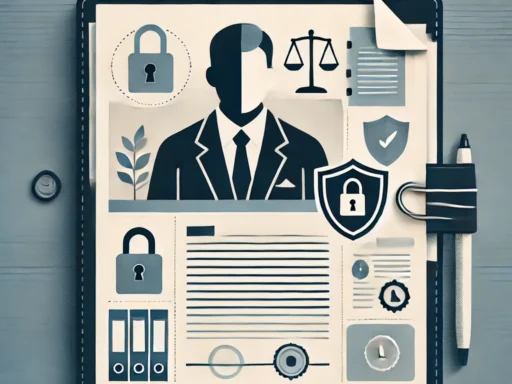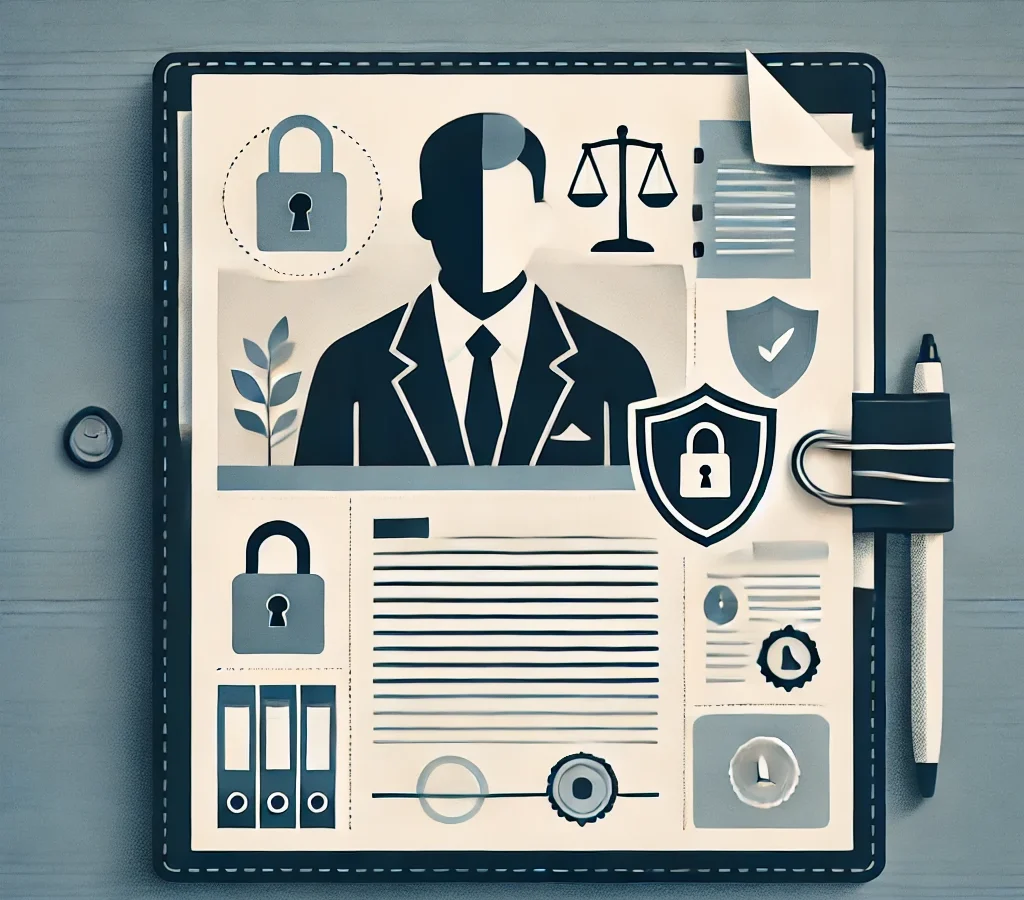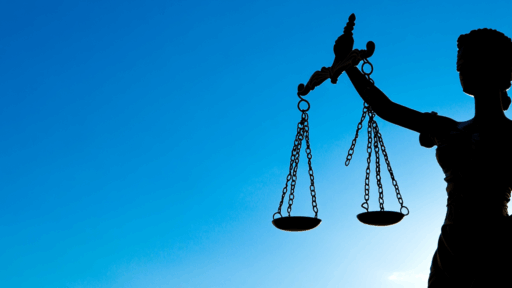Confidentiality in depositions isn’t just a legal formality; it’s a cornerstone of the justice system. When sensitive information is disclosed during these proceedings, maintaining its confidentiality is crucial to protect the rights of all parties involved. Failure to adhere to these standards clead to severe legal repercussions and compromise the integrity of the case.
This article delves into the essential strategies and legal standards that safeguard confidentiality in depositions, providing a comprehensive guide for legal practitioners.

Understanding Confidentiality in Depositions
Confidentiality in depositions involves the careful handling of sensitive information disclosed during legal proceedings. It ensures that privileged communication and private data are protected from unauthorized access or disclosure. This is crucial to maintain the integrity of the judicial process and respect the privacy rights of the parties involved.
Legal Standards for Confidentiality
Confidentiality obligations in depositions derive from various legal standards, such as protective orders, confidentiality agreements, and specific court rules. Protective orders issued by a court can restrict the dissemination of information obtained during a deposition. Confidentiality agreements between parties can further ensure that sensitive information is used only for designated purposes and not disclosed publicly.
Handling Sensitive Information
Handling sensitive information during depositions requires stringent measures to maintain confidentiality. Legal professionals must employ secure storage solutions and encrypted communication channels to prevent unauthorized access. This includes using password-protected documents and secure file-sharing platforms when exchanging deposition materials.
Role of Legal Practitioners
Legal practitioners play a pivotal role in ensuring deposition confidentiality. They must advise clients on the importance of confidentiality, monitor compliance with confidentiality agreements, and take immediate action if breaches occur. Legal practitioners should also familiarize themselves with relevant ethical guidelines and regulations to navigate confidentiality issues effectively.
Challenges in Maintaining Confidentiality
Challenges in maintaining confidentiality can arise from inadvertent disclosures, cyber threats, or misuse of information by involved parties. Legal professionals must remain vigilant and proactive in identifying and mitigating these risks. Regular training on confidentiality protocols and updates on the latest security technologies can help in overcoming these challenges.
Impact of Breaches
Confidentiality breaches in depositions can have severe consequences, including legal penalties, loss of client trust, and damage to reputations. Ensuring strict compliance with confidentiality standards is vital to prevent such outcomes. Legal professionals must conduct regular audits of their practices and implement corrective measures when necessary.
Understanding and adhering to confidentiality standards in depositions is essential for legal professionals to protect sensitive information and uphold the integrity of the legal process.
Legal Standards Governing Confidentiality
Confidentiality in depositions involves adhering to multiple legal frameworks. These frameworks ensure sensitive information remains protected throughout the legal process.
Federal Laws
Federal laws play a crucial role in safeguarding confidentiality during depositions. The Federal Rules of Civil Procedure (FRCP), particularly Rule 26(c), allow courts to issue protective orders to limit disclosure.
These protective orders help manage sensitive information by restricting who can access, review, or disseminate deposition materials. Violating these orders can result in sanctions or penalties.
The Health Insurance Portability and Accountability Act (HIPAA) is another federal law influencing deposition confidentiality. When depositions involve medical records or health information, HIPAA mandates strict protections to ensure patient privacy. Legal professionals must ensure compliance with HIPAA’s privacy and security rules to avoid breaches and legal repercussions.
State Laws
State laws differ in their specifics but, like federal laws, aim to ensure deposition confidentiality. Each state has its civil procedure rules which may contain specific provisions for protecting sensitive information. For instance, some states require automatic confidentiality for particular types of information, such as trade secrets or personal financial data.
California, under the Civil Discovery Act, allows parties to obtain protective orders to prevent misuse of deposition materials. Florida’s rules provide similar measures, emphasizing the protection of sensitive information in legal proceedings. Each state’s approach underscores the variety of methods employed to secure deposition confidentiality, reflecting local legal standards and practices.
Ensuring compliance with these varying laws requires legal professionals to stay informed about both federal and state confidentiality requirements. This enables them to effectively protect sensitive information during depositions and avoid potential legal issues.
Best Practices for Maintaining Confidentiality
Ensuring confidentiality in depositions involves strategic steps before, during, and after the deposition process. Legal professionals must follow these best practices to comply with legal standards and protect sensitive information effectively.
Pre-Deposition Preparations
Preparations before the deposition set the stage for maintaining confidentiality. Legal professionals draft and review confidentiality agreements or protective orders to restrict information disclosure. They brief all parties involved about the importance of confidentiality and the legal implications of breaches. The selection of a secure location for the deposition also plays a crucial role.
During the Deposition
During the deposition, maintaining confidentiality requires vigilance. Legal professionals should monitor the questioning closely to object promptly if questions impinge on protected information. They ensure that only authorized individuals are present and may request breaks to discuss sensitive matters off the record. The use of secure communication tools for remote depositions is essential to prevent unauthorized access.
Post-Deposition Procedures
Post-deposition procedures are vital for preserving confidentiality. Transcripts and recordings must be stored securely, accessible only to authorized personnel. Legal teams should conduct a final review of deposition materials, ensuring no confidential information is inadvertently disclosed in public records. If necessary, they file motions to seal certain parts of the deposition, adding an extra layer of protection.
Common Challenges and How to Overcome Them
Confidentiality in depositions faces several challenges. Unauthorized disclosure and technological risks are common issues professionals must navigate.
Unauthorized Disclosure
Unauthorized disclosure occurs when sensitive information leaks despite confidentiality measures. This often happens due to misunderstandings of confidentiality agreements or lapses in following protocols. Legal professionals should educate all participants on confidentiality norms and the consequences of breaches.
Implement access controls so only authorized personnel handle deposition materials. Use non-disclosure agreements (NDAs) to reinforce confidentiality, and remind participants of their obligations periodically.
Technological Risks
Technological risks include data breaches and unauthorized access. These can result from inadequate cybersecurity measures or using unsecured communication channels. Employ robust encryption for all sensitive data transmissions.
Regularly update security protocols and software to address vulnerabilities. Use secure platforms for virtual depositions, and restrict access to authorized users only. Periodic audits and security training also help mitigate technological risks.
The Role of Legal Professionals
Legal professionals play a pivotal role in maintaining the confidentiality of depositions. They ensure compliance with legal standards and safeguard sensitive information.
Responsibilities of Attorneys
Attorneys must enforce confidentiality throughout the deposition process. They identify sensitive information and instruct all parties on confidentiality obligations. Attorneys ensure that depositions comply with the Federal Rules of Civil Procedure (FRCP) and state confidentiality laws. They draft and enforce confidentiality agreements with clear terms.
During depositions, attorneys monitor proceedings to prevent unauthorized disclosures. They file motions to seal records when necessary and ensure secure storage of transcripts and recordings post-deposition.
Obligations of Court Reporters
Court reporters handle sensitive information during depositions, making their role crucial. They must follow confidentiality protocols and understand relevant federal and state laws. Court reporters secure and encrypt transcripts and recordings. They avoid unauthorized access and share confidential information only with authorized personnel.
In addition, court reporters often sign non-disclosure agreements to underscore their commitment to confidentiality. They are responsible for secure storage and transfer of deposition materials, ensuring that all data remains protected.
Secure Your Legal Proceedings with BlueNotary’s Advanced Solutions
Ensuring confidentiality in depositions is crucial for maintaining the integrity of the legal process. Legal professionals must stay informed about federal and state regulations while implementing best practices to safeguard sensitive information. By being vigilant and proactive, they can effectively mitigate risks associated with unauthorized disclosures and technological breaches.
With BlueNotary’s secure and efficient online notarization platform, you can ensure that all your deposition documents are authenticated and legally binding while protecting sensitive information.
Take proactive steps to safeguard your confidential information. Explore how BlueNotary can enhance your legal practice with robust notarization services and innovative security measures. Visit our website today to learn more about protecting your legal documents and maintaining confidentiality in your depositions.
Frequently Asked Questions About Confidentiality in Depositions
Q1. What are the legal standards for confidentiality in depositions?
Legal standards for confidentiality in depositions involve ensuring that sensitive information disclosed during the process is protected from unauthorized access or disclosure. This includes following court rules and regulations governing confidentiality.
Q2. How can lawyers ensure confidentiality during a deposition?
Lawyers can ensure confidentiality by marking sensitive documents as confidential, requesting protective orders from the court, and instructing all parties involved to adhere to confidentiality agreements and court orders.
Q3. What are protective orders and how do they relate to depositions?
Protective orders are legal directives issued by a court to limit the disclosure of sensitive information during a deposition. They help ensure that confidential information is not disclosed publicly or to unauthorized individuals.
Q4. What should lawyers do if confidentiality is breached during a deposition?
If confidentiality is breached, lawyers should immediately inform the court, seek appropriate remedies such as sanctions or additional protective orders, and take steps to mitigate any damage caused by the breach.
Q5. What are some compliance tips for maintaining confidentiality in depositions?
Compliance tips include conducting depositions in secure locations, using encryption for electronic documents, limiting access to confidential information, and regularly reviewing confidentiality protocols with all parties involved.








